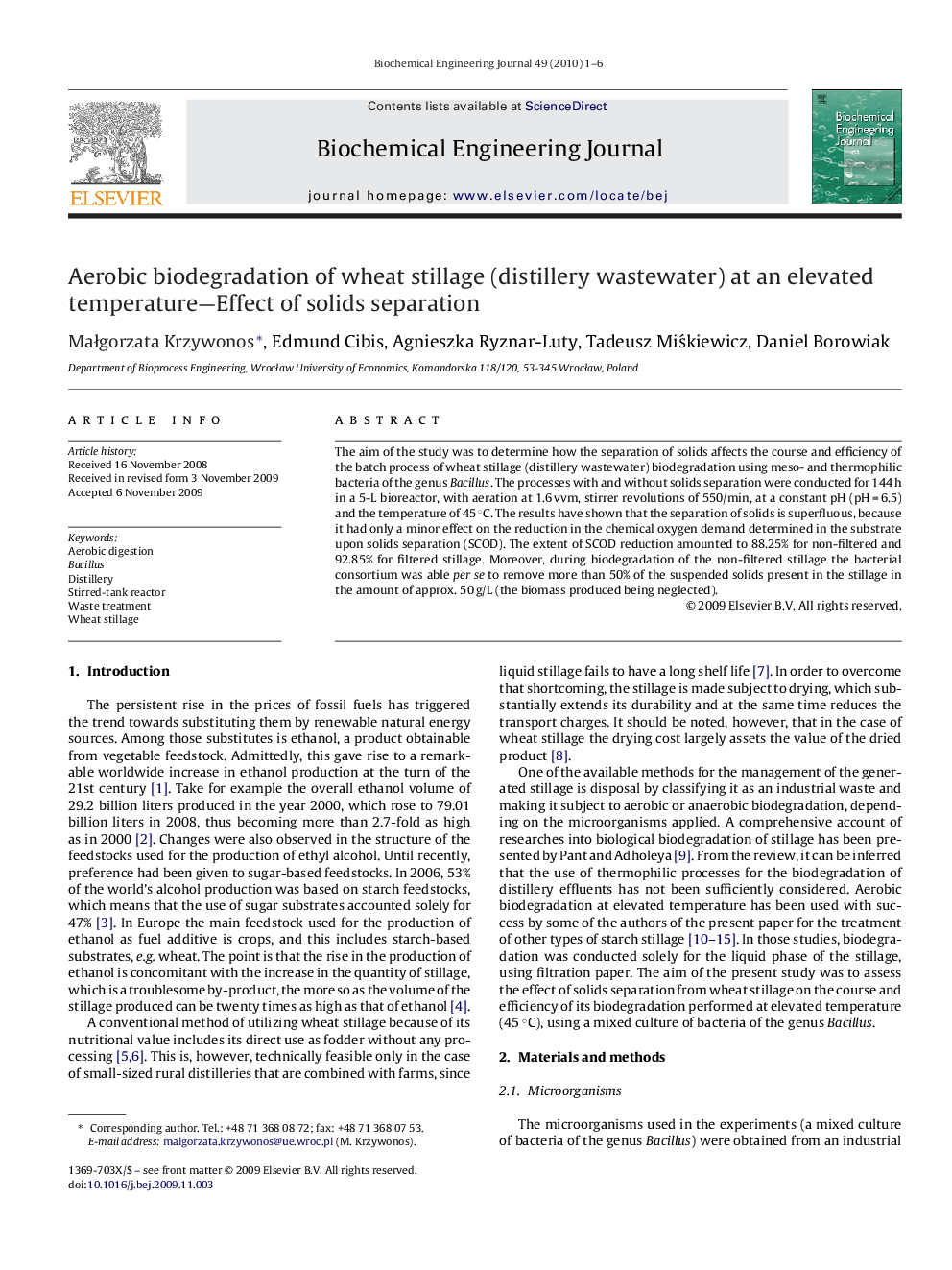| Article ID | Journal | Published Year | Pages | File Type |
|---|---|---|---|---|
| 4088 | Biochemical Engineering Journal | 2010 | 6 Pages |
The aim of the study was to determine how the separation of solids affects the course and efficiency of the batch process of wheat stillage (distillery wastewater) biodegradation using meso- and thermophilic bacteria of the genus Bacillus. The processes with and without solids separation were conducted for 144 h in a 5-L bioreactor, with aeration at 1.6 vvm, stirrer revolutions of 550/min, at a constant pH (pH = 6.5) and the temperature of 45 °C. The results have shown that the separation of solids is superfluous, because it had only a minor effect on the reduction in the chemical oxygen demand determined in the substrate upon solids separation (SCOD). The extent of SCOD reduction amounted to 88.25% for non-filtered and 92.85% for filtered stillage. Moreover, during biodegradation of the non-filtered stillage the bacterial consortium was able per se to remove more than 50% of the suspended solids present in the stillage in the amount of approx. 50 g/L (the biomass produced being neglected).
